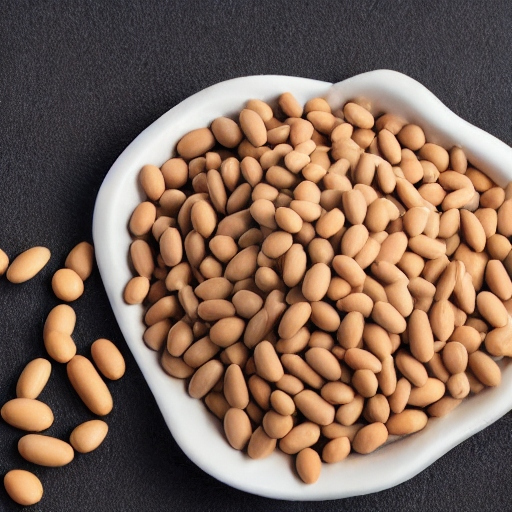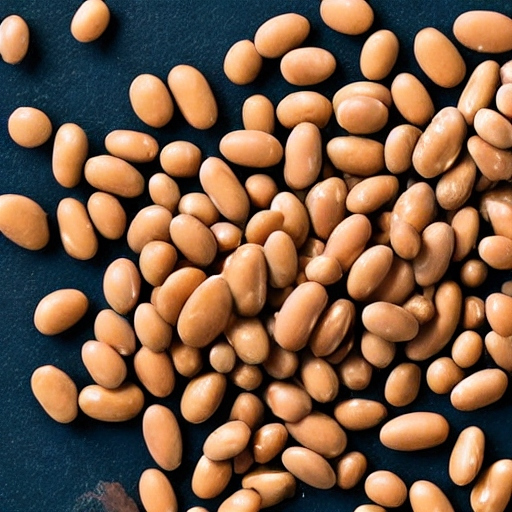You’re skeptical about the hype surrounding Nattokinase, right? That’s understandable.
But here’s the thing: this little-known enzyme derived from fermented soybeans creates ripples in the health world. It’s touted for preventing blood clots, boosting heart health, and even regulating blood pressure.
Before you dismiss it, join us in exploring the science-backed benefits, side effects, and ways to incorporate nattokinase into your diet. You might find it’s worth a shot.
Understanding Nattokinase: The Basics

Nattokinase breaks down fibrin, a protein that can cause blood clots and plaque buildup in your arteries. This means it could help with cardiovascular issues and high blood pressure.
But don’t get too excited yet. While the research is promising, it’s still not fully understood. So, before you rush to add nattokinase to your daily routine, it’s best to chat with your healthcare provider. They’ll guide you on whether it fits your health goals.
The Benefits of Nattokinase in Blood Clot Prevention

Here’s a snapshot of how nattokinase can help in blood clot prevention:
| Benefit | How it Works | Result |
|---|---|---|
| Dissolves Fibrin | It breaks down the protein that forms clots | Prevents clot formation |
| Improves Blood Flow | Thins the blood, reducing viscosity | Lowers risk of clot-related conditions |
| Boosts Overall Heart Health | Promotes better circulation and heart function | Lowers overall cardiovascular risk |
How Nattokinase Contributes to Heart Health
Beyond its role in blood clot prevention, nattokinase offers multiple other benefits to your heart health.
- Lowers Blood Pressure: Nattokinase helps in reducing your blood pressure levels. It’s been proven to reduce systolic and diastolic pressure, making it a natural solution for hypertension.
- Improves Circulation: This enzyme improves blood circulation by dissolving excess fibrin in blood vessels, helping your heart function more efficiently.
- Reduces LDL Cholesterol: Nattokinase can help decrease your ‘bad’ LDL cholesterol levels, a key contributor to heart disease.
- Prevents Heart Disease: By tackling high blood pressure, poor circulation, and high cholesterol levels, nattokinase effectively reduces your risk of heart disease.
Nattokinase and Its Impact on Blood Pressure Levels
Managing your blood pressure levels becomes simpler with nattokinase’s natural ability to lower systolic and diastolic pressure. This enzyme, extracted from a Japanese soybean dish called natto, acts as a natural blood thinner, facilitating smoother blood flow and reducing pressure on arterial walls. It also dissolves fibrin, a protein involved in blood clot formation.
This means it reduces your blood pressure and your risk of dangerous clots. Remember, balanced blood pressure is crucial for your overall health, reducing risks of strokes, heart attacks, and kidney diseases. So, it’s worth considering adding nattokinase supplements to your health regimen.
However, always consult your healthcare provider before starting any new supplement, especially if you’re on blood-thinning medication.
Exploring the Side Effects and Risks of Nattokinase
While Nattokinase offers a variety of health benefits, it’s essential to understand its potential risks and side effects. You might experience common side effects or serious risk factors, particularly if taking other medications.
Let’s take a closer look at what you need to be aware of.
Common Side Effects
Despite its benefits, your body’s reaction to Nattokinase might include some common side effects you should be aware of. While Nattokinase is generally considered safe, reactions can vary from person to person. Here are a few potential side effects:
- Bleeding: This is the most common risk associated with Nattokinase. It might make you more susceptible to bleeding and bruising.
- Allergic Reactions: You might experience rashes, itching, or swelling, particularly if you’re allergic to soy.
- Stomach Upset: Some people report feeling nauseous or experiencing bloating or stomach pain.
- Low Blood Pressure: Nattokinase could lower your blood pressure, which could be problematic if it’s already on the lower side.
Serious Risk Factors
Beyond the common side effects, there are serious risk factors you should consider before incorporating Nattokinase into your regimen.
If you’re on blood-thinning medications like warfarin or aspirin, nattokinase can increase your risk of bleeding. Due to this same risk, it’s also not recommended for those with bleeding disorders or upcoming surgeries.
Pregnant or breastfeeding women should avoid it, as its effects on these groups aren’t well-studied.
If you’re allergic to soy, steer clear, since nattokinase is derived from fermented soybeans.
Lastly, don’t ignore potential interactions with other supplements and medications. Always consult your healthcare provider before starting a new supplement, especially if you’ve got pre-existing health conditions.
It’s your health – don’t gamble with it.
Interactions With Medications
In light of its health benefits, you should be aware that nattokinase can interact with certain medications, potentially leading to side effects and increased health risks. This potent enzyme isn’t to be taken lightly.
Here are 4 key points to remember:
- Blood Thinners: Nattokinase can intensify the effects of medication like warfarin, increasing your risk of bleeding.
- Blood Pressure Drugs: When combined with these meds, nattokinase can cause your blood pressure to drop too low.
- Antibiotics: Nattokinase can interfere with the absorption of certain antibiotics, making them less effective.
- Herbal Supplements: Certain herbs, such as garlic or gingko, can also enhance the blood-thinning effect of nattokinase.
Always consult your healthcare provider before starting any new supplement regimen.
Tips for Incorporating Nattokinase Into Your Diet
You might wonder how to incorporate nattokinase into your everyday diet, so let’s explore some practical tips.
Firstly, nattokinase is usually taken as a supplement, which you can easily add to your daily routine. It’s available in capsule form, so it can be swallowed with water.
Secondly, you could also consider including natto, a traditional Japanese food from fermented soybeans, in your diet. Natto is a natural source of nattokinase and can be added to your meals like a condiment.
Remember, moderation is key. Too much of any supplement can lead to side effects.
Lastly, always consult your healthcare provider before starting any new supplement regimen.
These tips should help you confidently incorporate nattokinase into your diet.
Frequently Asked Questions
Can I Take Nattokinase if I’m Pregnant or Nursing?
You’re asking if taking nattokinase while pregnant or nursing is safe. It’s crucial to consult your healthcare provider before taking any supplements during this time, as everyone’s health situation is unique.
Is Nattokinase Safe for Children and Teenagers?
Yes, nattokinase is generally safe for children and teenagers. However, it’s crucial to monitor dosage and consult a healthcare provider, as their bodies are still growing and may react differently than adults.
Does Nattokinase Interact With Other Medications or Supplements?
Yes, Nattokinase can interact with other medications or supplements. It’s especially critical if you’re on blood thinners. Always consult your doctor before starting any new supplement to avoid potential adverse interactions.
Are There Any Specific Health Conditions Where Nattokinase Should Be Avoided?
You should avoid Nattokinase if you’ve bleeding disorders, upcoming surgeries, or if you’re on blood-thinning medication. It’s also not recommended for pregnant or breastfeeding women due to insufficient safety data.
Can Nattokinase Be Taken Long-term or Be Used for a Specific Period Only?
Like a marathon, you can’t run indefinitely. Similarly, nattokinase should be used short-term unless prescribed by a healthcare provider. Long-term use isn’t typically recommended due to potential blood-thinning effects. It’s all about balance.
Conclusion
Imagine steering a ship through your veins, the sails powered by the breeze of Nattokinase. This mighty enzyme battles blood clots guards your heart, and keeps your blood pressure steady.
It’s not a magic bullet, but a tool in your wellness arsenal. Remember, every ship needs a balanced crew – consider potential side effects and talk with your doctor.
Now, plot your course and let Nattokinase guide you toward the horizon of improved health.
Sources: